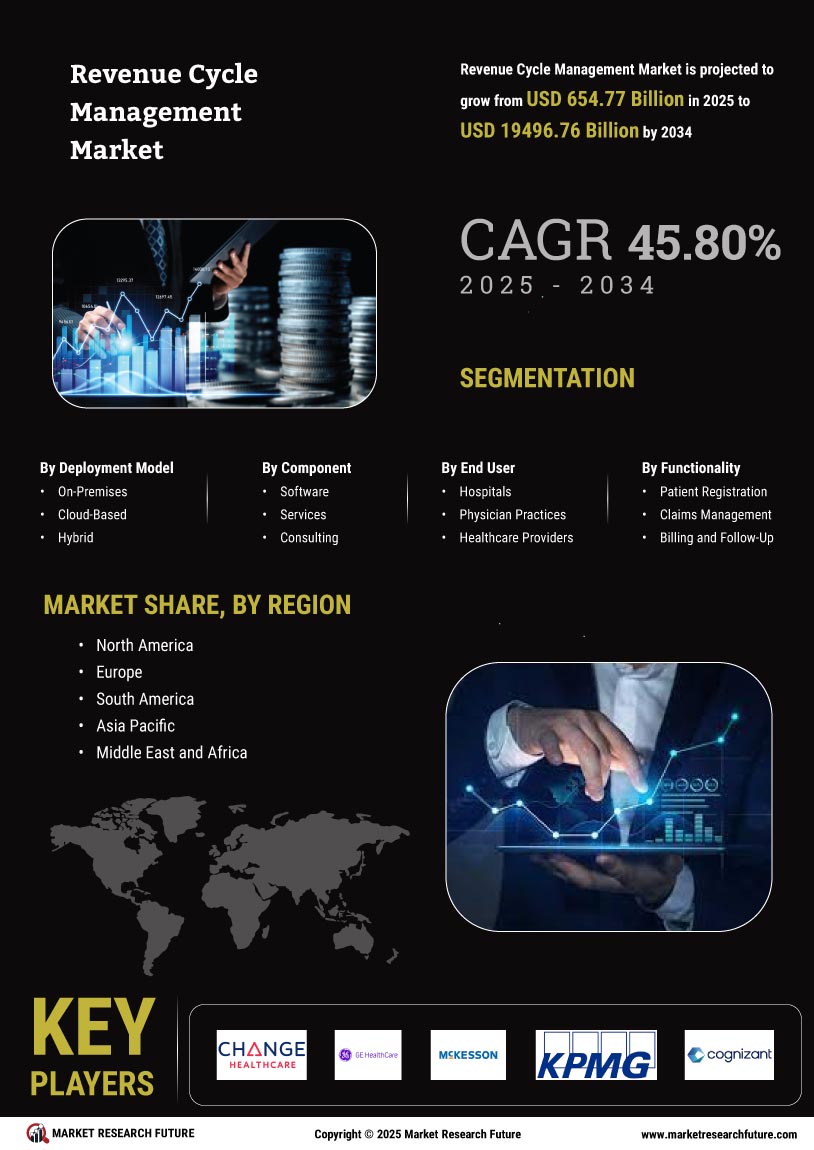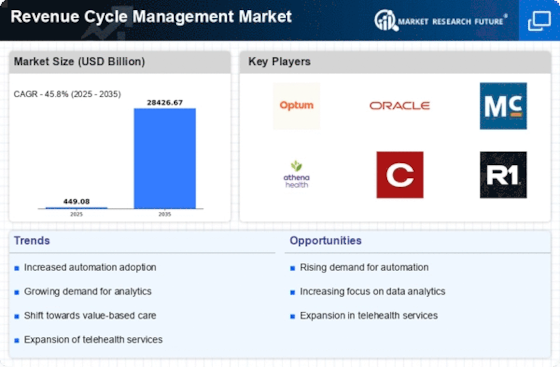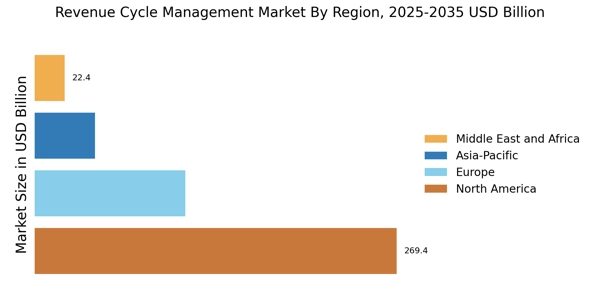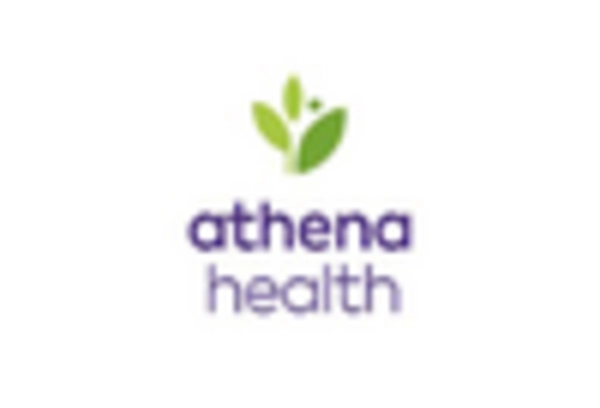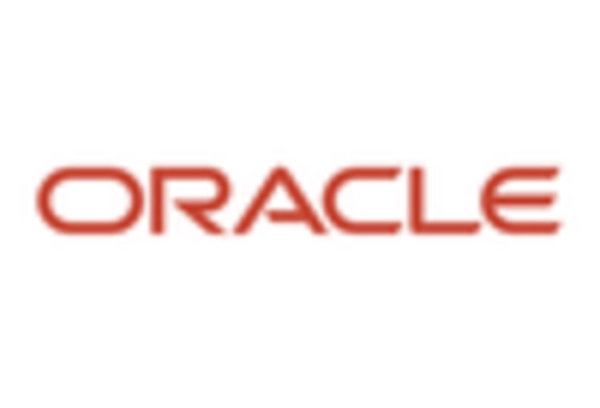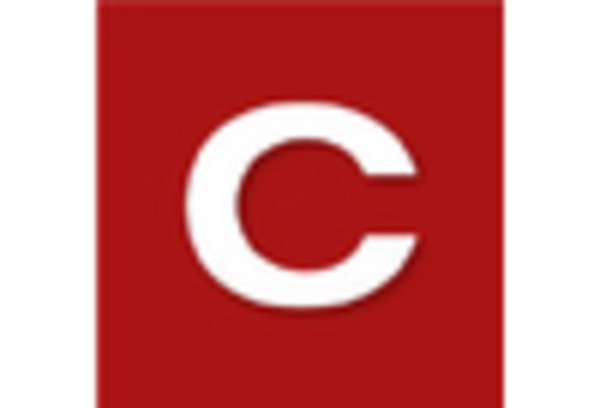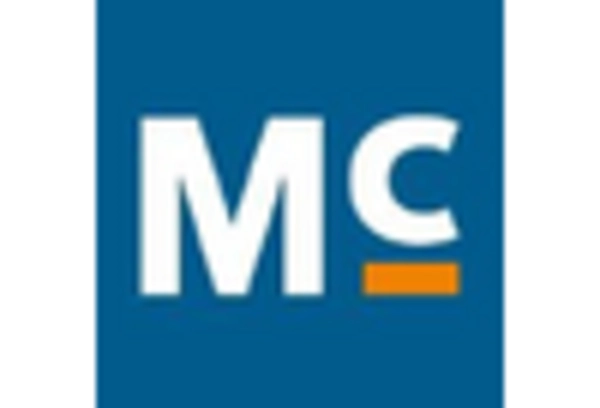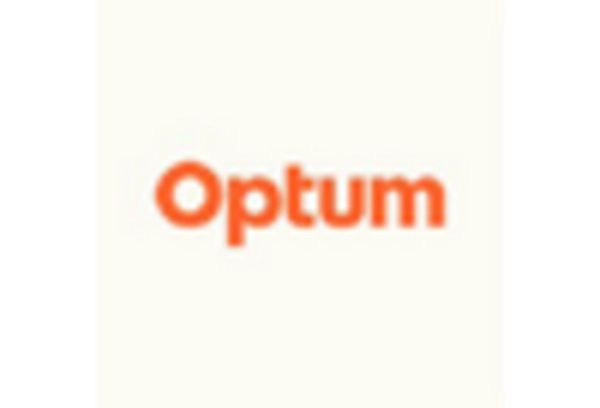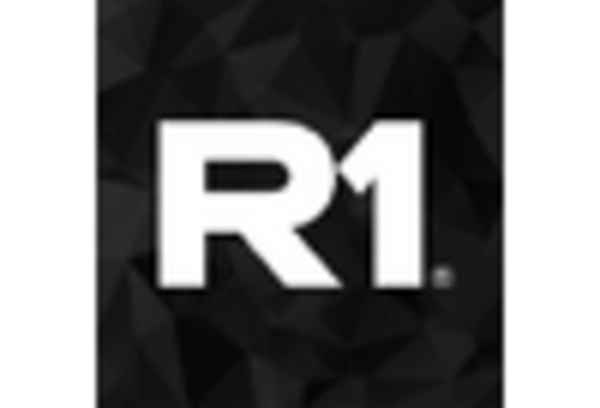Adoption of Advanced Technologies
The integration of advanced technologies is a pivotal driver in the Revenue Cycle Management Market. Healthcare organizations are increasingly leveraging technologies such as artificial intelligence, machine learning, and data analytics to enhance their revenue cycle processes. These technologies facilitate improved accuracy in billing, predictive analytics for revenue forecasting, and automation of routine tasks, thereby streamlining operations. Data indicates that the adoption of AI in revenue cycle management could reduce operational costs by up to 30%. As healthcare providers seek to enhance efficiency and reduce costs, the demand for technology-driven revenue cycle management solutions is likely to surge. This trend reflects a broader movement towards digital transformation in healthcare, positioning advanced technologies as a key driver of growth in the Revenue Cycle Management Market.
Regulatory Compliance and Reimbursement Changes
Regulatory compliance remains a critical driver within the Revenue Cycle Management Market. As healthcare regulations evolve, organizations must adapt their revenue cycle processes to ensure compliance with new reimbursement models and reporting requirements. The transition to value-based care has introduced complexities in reimbursement structures, necessitating sophisticated revenue cycle management solutions. Data suggests that healthcare providers face significant penalties for non-compliance, which can adversely affect their financial stability. Therefore, the demand for revenue cycle management solutions that facilitate compliance with regulations, such as the Affordable Care Act and ICD-10 coding, is likely to increase. This trend underscores the importance of robust revenue cycle management systems in navigating the complexities of regulatory compliance and reimbursement changes, ultimately driving growth in the Revenue Cycle Management Market.
Rising Healthcare Costs and Financial Pressures
The escalating costs of healthcare services are exerting considerable financial pressure on providers, thereby influencing the Revenue Cycle Management Market. As healthcare expenditures continue to rise, organizations are compelled to adopt effective revenue cycle management strategies to mitigate financial risks. Recent statistics indicate that healthcare spending is projected to reach USD 6 trillion by 2027, prompting providers to seek solutions that enhance revenue capture and reduce operational inefficiencies. The financial pressures associated with rising costs necessitate a focus on optimizing revenue cycles to ensure sustainability. Consequently, the demand for comprehensive revenue cycle management solutions that address these challenges is likely to grow, as providers aim to maintain profitability while delivering quality care. This trend highlights the critical role of revenue cycle management in navigating the complexities of rising healthcare costs.
Increased Demand for Efficient Billing Solutions
The Revenue Cycle Management Market is experiencing heightened demand for efficient billing solutions. As healthcare providers strive to optimize their financial performance, the need for streamlined billing processes becomes paramount. According to recent data, the revenue cycle management solutions market is projected to reach USD 100 billion by 2026, indicating a robust growth trajectory. This demand is driven by the necessity to reduce billing errors, enhance cash flow, and improve overall operational efficiency. Healthcare organizations are increasingly adopting advanced technologies, such as automation and artificial intelligence, to facilitate accurate billing and timely collections. Consequently, the focus on efficient billing solutions is likely to propel the growth of the Revenue Cycle Management Market, as providers seek to enhance their financial health and patient satisfaction.
Focus on Patient-Centric Revenue Cycle Management
The shift towards patient-centric care is significantly influencing the Revenue Cycle Management Market. Healthcare providers are increasingly recognizing the importance of engaging patients in their financial responsibilities, which necessitates a more transparent and accessible revenue cycle process. This focus on patient engagement is driven by the need to improve patient satisfaction and reduce billing disputes. Data suggests that organizations that prioritize patient-centric revenue cycle management can enhance collections by up to 20%. As patients become more involved in their healthcare decisions, the demand for solutions that facilitate clear communication regarding costs and payment options is likely to grow. This trend underscores the importance of aligning revenue cycle management practices with patient needs, thereby driving innovation and growth within the Revenue Cycle Management Market.
